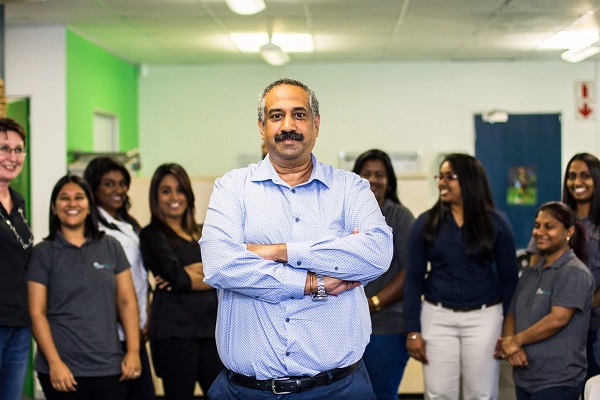Three strategies that business leaders can use to impact economic transformation
A crucial part of any CEO’s legacy is the financial health of their company, but they are also responsible for ensuring that sustainability is embedded throughout their organisation, that business plays its rightful role as a lasting force for change in society.
Rajan Naidoo, the Managing Director of EduPower Skills Academy, believes that CEO’s looking to create this legacy have a powerful tool in their business: B-BBEE.
“B-BBEE can be seen as racially divisive or as a great equaliser and the attitude a company adopts is often driven from the top,” Rajan explains. “If it is viewed by the CEO as an exercise in tick-box compliance, that’s all B-BBEE will ever be. But those visionary leaders who see B-BBEE as an instrument for empowerment are creating opportunities that will benefit everyone in our society, either directly or indirectly.”
Rajan believes that B-BBEE has the potential to enable a strong middle-income group that will positively impact South Africa’s economy and the social fabric of our nation. “B-BBEE is about empowering fellow members of our society to rise out of poverty so that they can play an active role in our economy,” he explains.
To strengthen the development of this much-needed middle-income group, Rajan encourages CEO’s to implement the following three tactics in their B-BBEE strategies:
1. Skills Development
Every developing economy is striving to build a foundational middle-income group as it is a stepping-stone for society to focus on scientific, technological, artistic and recreational endeavours that are otherwise constrained. Skills Development, a priority element on the B-BBEE scorecard, is the easiest way to create available skills in our society. It provides previously unemployed individuals – especially South Africa’s youth – with the opportunity to access relevant occupation-specific training and practical work experience of which they can start building sustainable careers. This creates meaningful change where it really matters.
2. Enterprise Development
While many companies are already sponsoring learnerships, the true intent of Skills Development is that the qualification will result in full-time employment. In the current economic climate, however, most businesses are not in a position to offer their learners employment when they complete their qualifications. As a solution, EduPower’s innovative absorption model ensures that when unemployed learners graduate, they are placed into permanent jobs in small companies. Instead of adding this salary burden for the SME though, these jobs are funded in the short-term by large companies through their enterprise development budgets.
3. Supplier Development
As the SME has a sponsored, skilled labour force, the chances that it will thrive during the first year of operations are far better. And as they grow, these organisations will employ more learners to boost their ranks, creating additional job opportunities. As these SME’s mature into year two of their operations, they can be supported through Supplier Development funding as corporates add these fledgling businesses to their supply chains and use them to procure goods or services.
Rajan says this simple model to support small businesses and incentivise employment can build economic momentum by raising more South African’s out of poverty. Not only does this benefit society as a whole, the resultant larger middle-income group provides a wider market for goods and services.
“A healthy economy underpinned by a solid middle-income group serves the interest of every member of our society and therefore B-BBEE must be viewed as empowerment in its broadest sense,” Rajan adds.
He concludes by saying that success as a leader has changed. “Integrating responsible practice into business strategy at a senior level ensures that empowerment through B-BBEE becomes a shared vision. Sustainability is a long game and it is those leaders who understand this whose businesses will be profitable, survive and thrive, while also having a positive impact on people and society – and this is surely the ultimate legacy for any CEO.”












